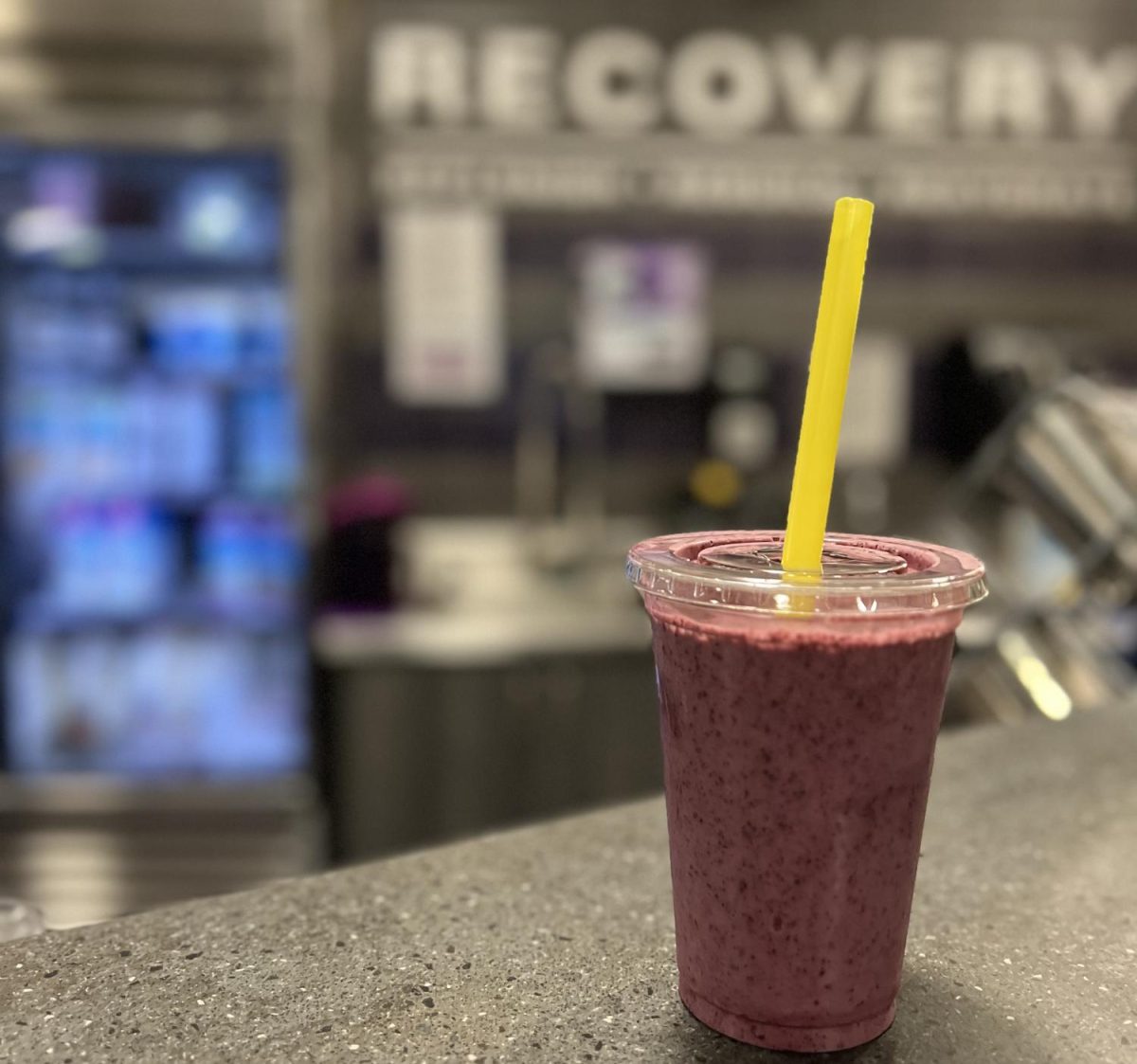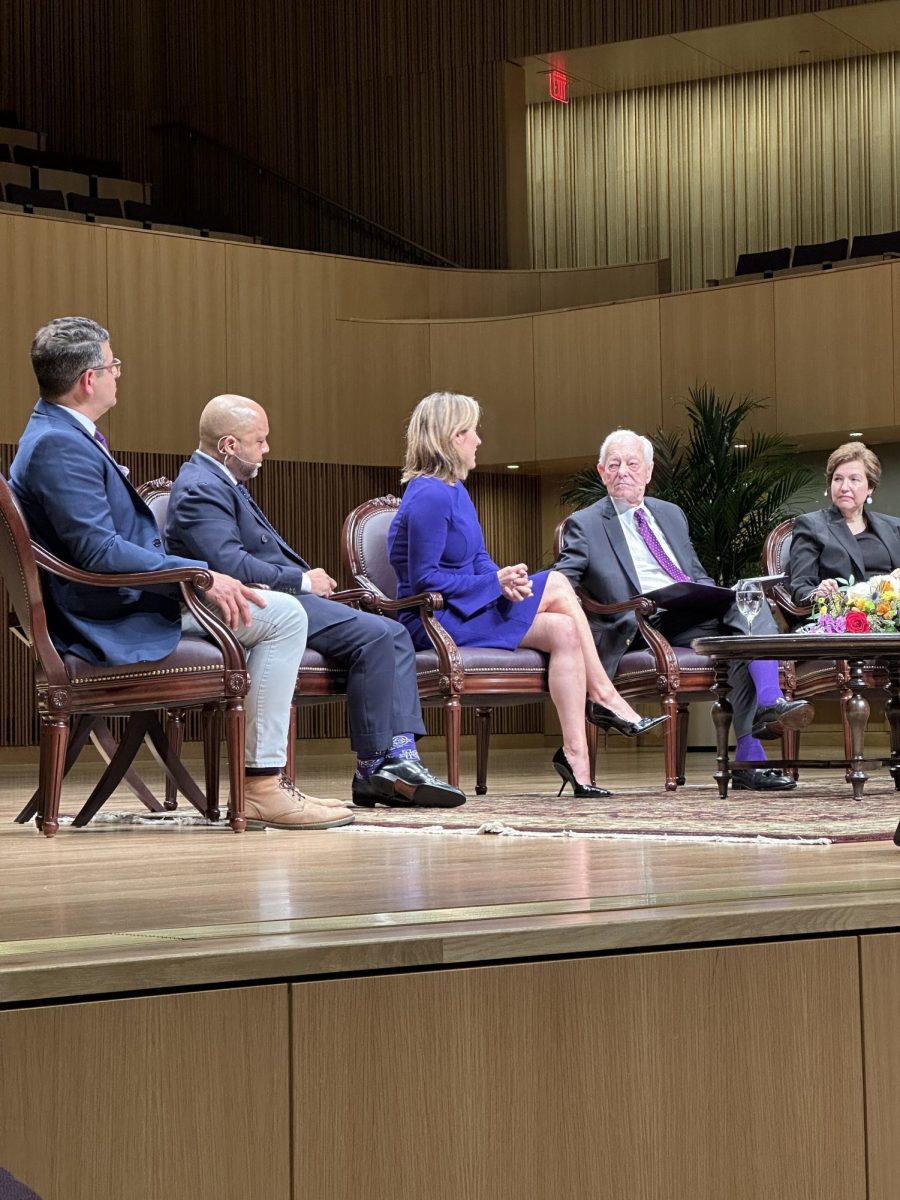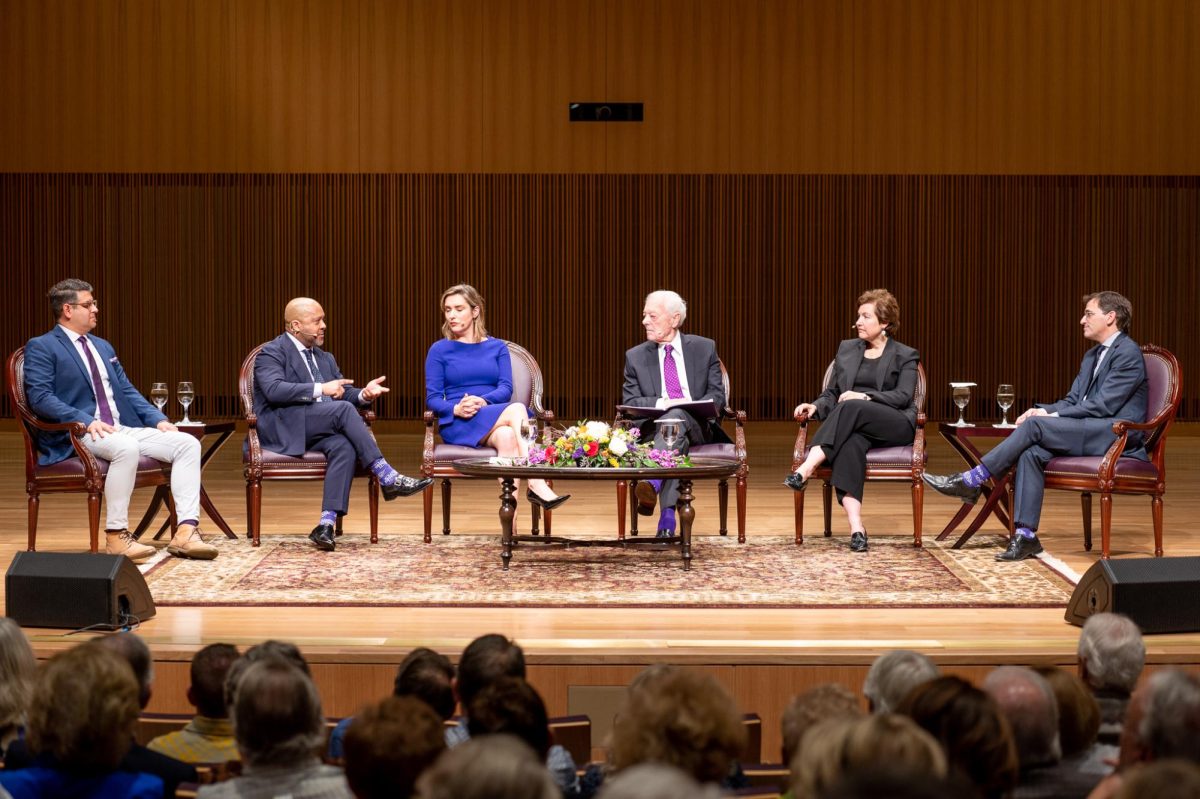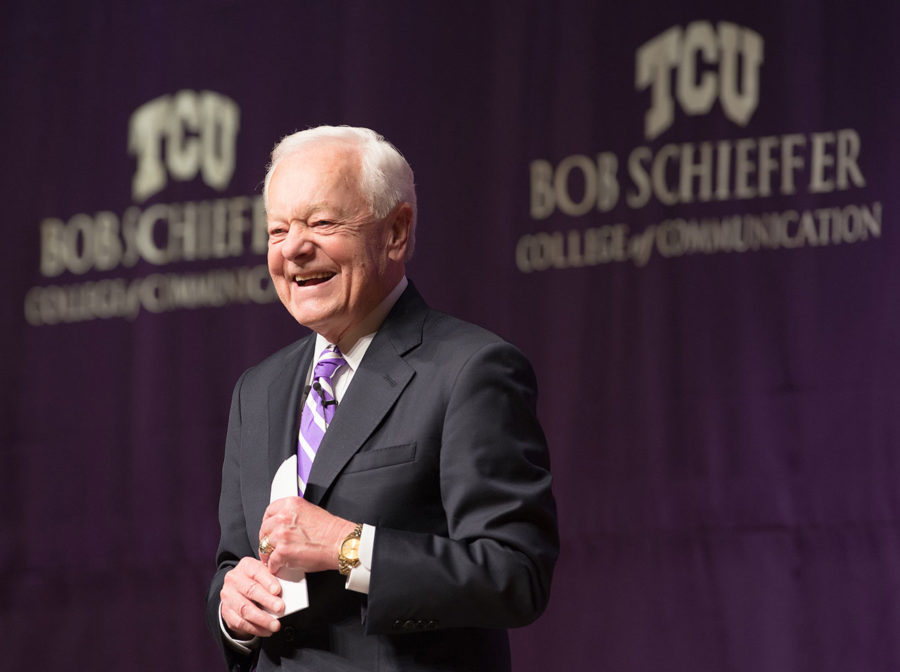Correction: Nancy Youssef’s last name and news organization were incorrect in an earlier version of this article. Youssef works for the McClatchy Newspapers.
Five prestigious journalists were welcomed at TCU’s Ed Landreth Auditorium Wednesday for the ninth annual Schieffer Symposium on the News. This year’s discussion centered on challenges overseas, specifically the problems in the Middle East.
The panel consisted of Bob Schieffer, TCU alumnus and chief Washington correspondent for CBS news; Charlie Rose, co-host of CBS This Morning; Fred Barnes, executive editor of The Weekly Standard ; Nancy Youssef, Middle East bureau chief for McClatchy Newspapers; and CBS News foreign corespondent Clarissa Ward.
Schieffer moderated the discussion amongst the panel and started by addressing Ward, who he praised for her undercover work in Syria and her fearlessness in returning five times, putting her life at risk. Ward discussed her travels in Syria and described the country as “the most challenging environment.”
“In Syria there are no hotels. You’re living with the people. Their hell is your hell,” Ward said.
Ward said there is “no escape ward in Syria,” describing how she travels with no cell phone, but rather with a satellite phone so that her offices can assure she is safe.
Schieffer jokingly directed the conversation to Barnes and Rose about life in the United States and asked about what was occurring in Washington.
Barnes talked about how discussion of the 2016 election is already developing and how the topics of gun control and immigration reform are continuing.
Rose said he is hopeful that we may see some progress even though we haven’t seen any results yet. Schieffer added how he thinks we have “miles to go” on immigration reform.
Schieffer then redirected the conversation to Youssef, asking her about the problems in Afghanistan. Youseff said there has been so much money invested in the country and little has changed over the years. “The real fighting begins when we leave Afghanistan,” Youssef said.
Youssef also added how the United States is more worried about optics rather than “getting on the ground and fixing things.”
Ward added to the conversation by saying that the United States has not given Afghanistan an economy, but rather an economy of war. “It’s hard to imagine peace in Afghanistan if we leave unless the building blocks of peace are in place before we leave,” Ward said.
Moving from Afghanistan to Pakistan, Ward described the relationship between the United States and Pakistan as dysfunctional, but also said how important it was that the relationship is there. “I don’t know how we figure it out, but we need to figure it out,” Ward said.
“The relationship between the United States and Pakistan needs to exist,” Barnes said.
The symposium concluded with a question and answer session with the audience, where the panelists gave insight on their jobs as journalists.
“What we should never forget is that there are people who risk their lives to get the true story,” Schieffer said.
Ward then responded to a question from the audience by saying, “If you can’t keep it together, then it’s not the job for you.”





